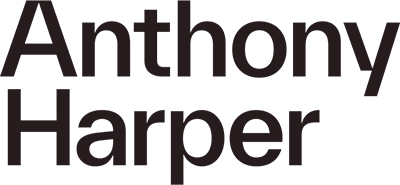Morgo Stories: Conscious Consumers - Doing Well by Doing Good
When Ben Gleisner and Melissa Keys started Conscious Consumers, their goal was to create a sustainable business that helped consumers make ethical purchasing choices. Essentially, it’s about sharing information between companies and consumers to encourage and enable ethical business. And now with a user base of 400 retailers, 100 suppliers and 12,500 consumers signed up, the company is indeed providing evidence of demand for new commercial practices, and firms are responding.
There was always good synergy between the co-founders: both had sustainability-related Masters degrees, both had tried to start up their own small community projects in the past, and both were feeling frustrated by the lack of positive impact coming from their work within large government departments. They came to the decision that the best pathway to encouraging sustainability did not begin inside the public sector, but rather, should involve commerce. “We realised it was the commercial world, the economy, with the biggest potential to impact sustainability,” explains Ben.
In the early days, Conscious Consumers operated as a side project with both founders remaining in their 9-5 jobs. Ben made the leap away from his Treasury role in 2011 to focus on the business full time. Now, 14 fulltime staff are employed by the company.
Conscious Consumers have come a long way since the early days working with a few local Wellington cafes. At that time they provided window stickers that told consumers what sustainable activities the café was engaged in, for example, ‘We Compost’, and information booklets were available inside to educate customers about sustainability. Then a website was built to provide consumers with more information about participating cafes and how to find them. Ben explains that they were focused on making connections: “We wanted to make it easy for consumers to find these businesses.”
Wellington Council was enthusiastic about the waste minimisation aspect of the initiative, and provided an initial $5,000 of funding. This small investment was significant for the start-up and allowed expansion into Auckland, the Waikato, and beyond. In 2012, the first app was built, which catered to Wellington Cafés as well as a small but growing client base from the wider hospitality industry.
But the team realised something was stopping them from expanding further. Ironically, it was the same thing that had carried the company through their early years: businesses signed onto the initiative because of the underlying principle of creating a better world, not because they thought it delivered significant commercial benefits. A focused piece of market research showed that in order to appeal to a wider market, they had to provide businesses with a valuable link between consumers’ ethical concerns and their spending. Clear signals could then be created to guide businesses in responding to consumer concerns, and in doing so, create the changes that their customers wanted to see.
Their timing was impeccable. Improvements in technology allowed Conscious Consumers to partner with Paymark to make direct links between app users’ spending and what those consumers said they cared about. With the backroom data sharing in place, a brand new app was launched in 2015, with the offering extended outside of hospitality to retailers.
The Conscious Consumers app now lets consumers set their priorities on a number of different sustainability and ethical values, and it shows them nearby stores or cafes which are aligned with those values. Businesses know when app users are spending at their establishment and what issues are most important to them. It’s a great way to reinforce the ethical practices of participating businesses.
Ben describes the company as having now developed into a Digital Marketing Service with in-built market research functionality. As an active marketing tool, the app can be used by retailers to deliver incentives directly to the specific individuals they want to reach; a potential customer passing near to a store will trigger a voucher to be sent to their mobile phone. Feedback on customer response to either the vouchers or general marketing campaigns is provided in real-time to track impact. Using tech and data in this way to effect positive economic change is a world first.
They’ve also introduced an Accreditation System for businesses to upload evidence of their sustainable behaviour. Rather than develop a costly new audit process from scratch, the company relies on existing certification schemes, such as Living Wage Employer Accreditation and the SPCA’s Blue Tick.
Conscious Consumers has become more sophisticated in gathering and using data, and businesses are already benefiting from greater understanding of what customers care about, but there is a desire by commercial users to access even richer consumer insights to inform new sustainability initiatives and communication strategies. This is especially true in terms of connecting with the lucrative top 10% of spenders. In response, the company has begun developing better functionality. Consumers will also benefit from the changes through being able to access more information about what sustainability-focused activities their favourite brands are engaging in, and they’ll be able to contribute directly to new product development and other business initiatives. In September, a major relaunch will take place at the Social Enterprise World Forum in Scotland.
By the end of 2017, $2 million in investment funds had been raised in New Zealand. Now the task of establishing a presence in the UK is just beginning, and the company plans to raise a further $800,000 there to support those growth plans. Ben and his family moved to the UK in July to start the grueling task of taking the company global.
Conscious Consumers has a mission and purpose beyond simply making money; it wants to show that businesses can make money and do good at the same time. Ben states his aim very succinctly:
“We are here to change the world for the better.”





